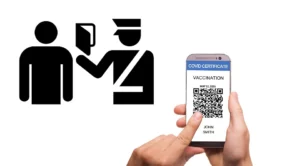In a press release published by the European Council, the EU and Schengen Area could be lifting travel restrictions for 15 specific third-country nationals.
The countries include:
- Algeria
- Australia
- Canada
- Georgia
- Japan
- Montenegro
- Morocco
- New Zealand
- Rwanda
- Serbia
- South Korea
- Thailand
- Tunisia
- Uruguay
- China, but this is subject to reciprocity from the Chinese government
The press release also stated that residents of Andorra, Monaco, San Marino, and the Vatican should be considered as residents of the EU for the purposes of this recommendation, meaning that these countries are likely now exempt from travel restrictions to the rest of the EU.
As for determining which third-country nationals will be allowed into the EU for the time being, the European Council stated that the factors that should be considered would include the countries’ epidemiological situation, containment measures, and economic and social conditions.
“The criteria to determine the third countries for which the current travel restriction should be lifted cover in particular the epidemiological situation and containment measures, including physical distancing, as well as economic and social considerations. They are applied cumulatively,” the press release reads.
The criteria for new countries to be added to the acceptance list will be revised every two weeks.
Third countries should meet the following epidemiological criteria before the EU will consider allowing their citizens to enter:
- Number of new COVID-19 cases over the last 14 days and per 100 000 inhabitants close to or below the EU average (as it stood on 15 June 2020).
- Stable or decreasing trend of new cases over this period in comparison to the previous 14 days.
- Overall response to COVID-19 taking into account available information, including on aspects such as testing, surveillance, contact tracing, containment, treatment and reporting, as well as the reliability of the information and, if needed, the total average score for International Health Regulations (IHR). Information provided by EU delegations on these aspects should also be taken into account.
The Council also makes it clear that reciprocity will be a factor in deciding who will be allowed to enter.
Some will be still be exempt from the travel restrictions even if they are from a restricted third country, however. The people exempted from the restrictions will include EU Citizens and their family members; long-term EU residents and their family members; travelers with a specific function or need.
The aforementioned list of recommendations is not legally binding. Therefore, authorities in each individual Member State is responsible for implementing (or not implementing) the recommendations of the European Council.














